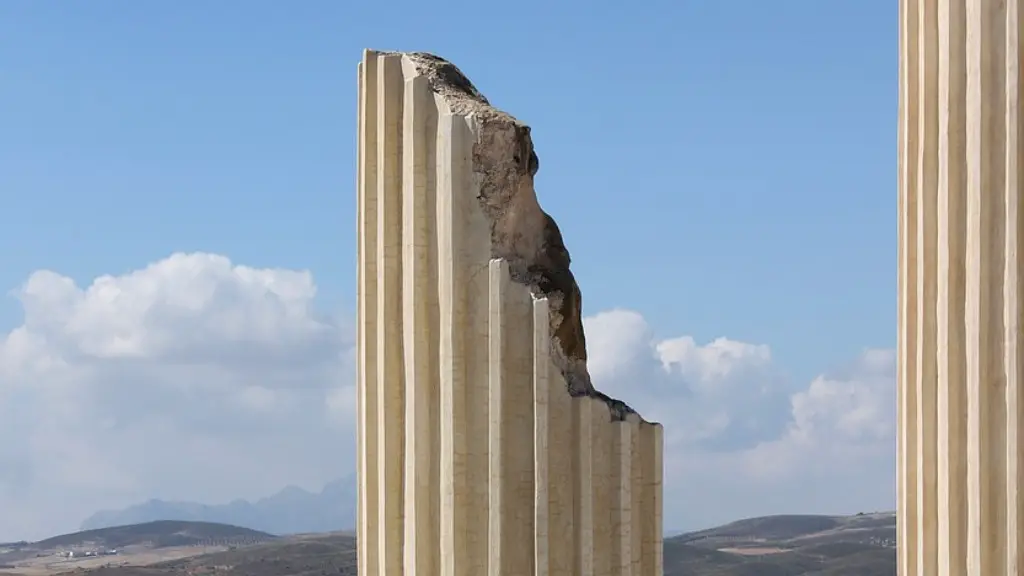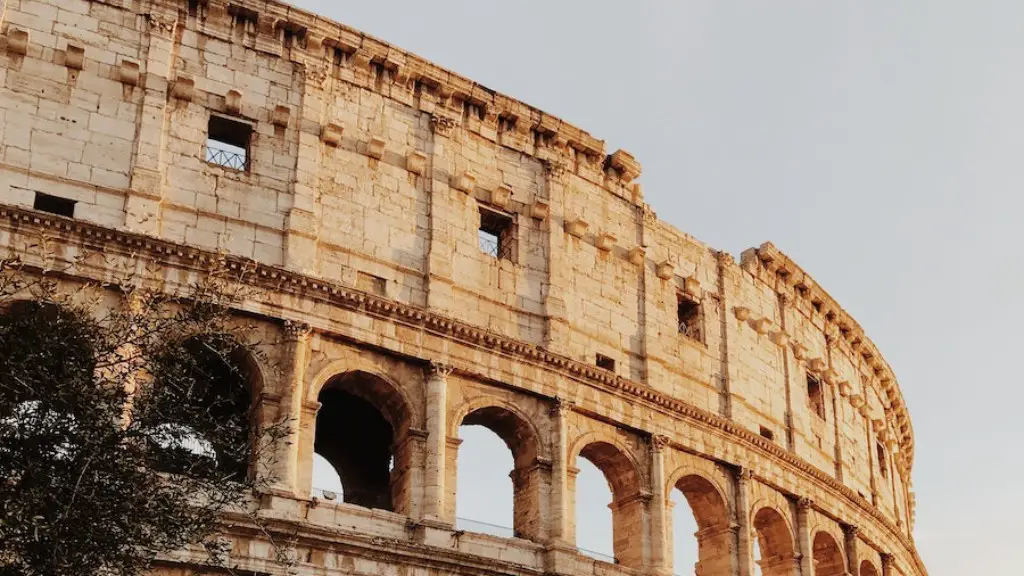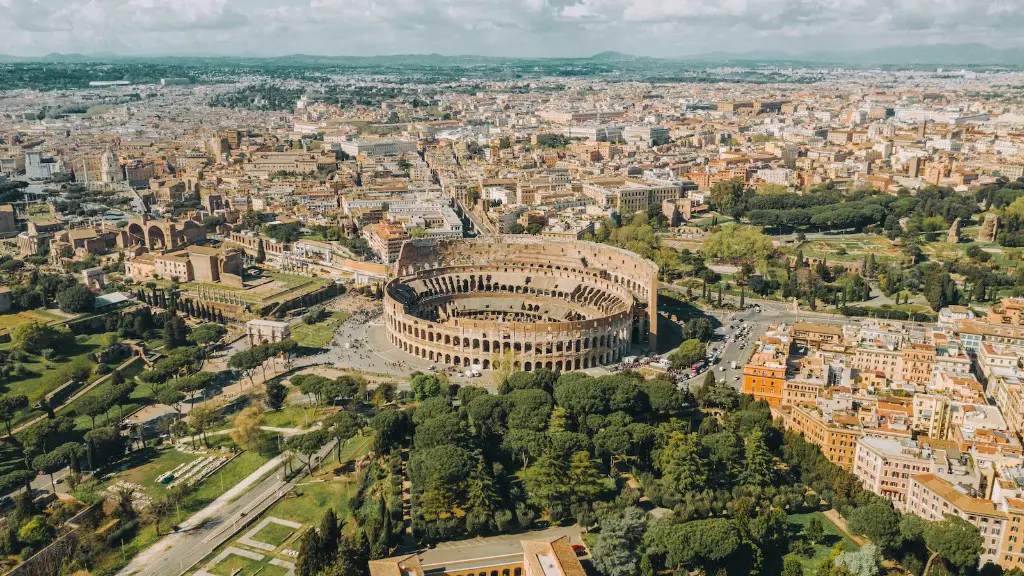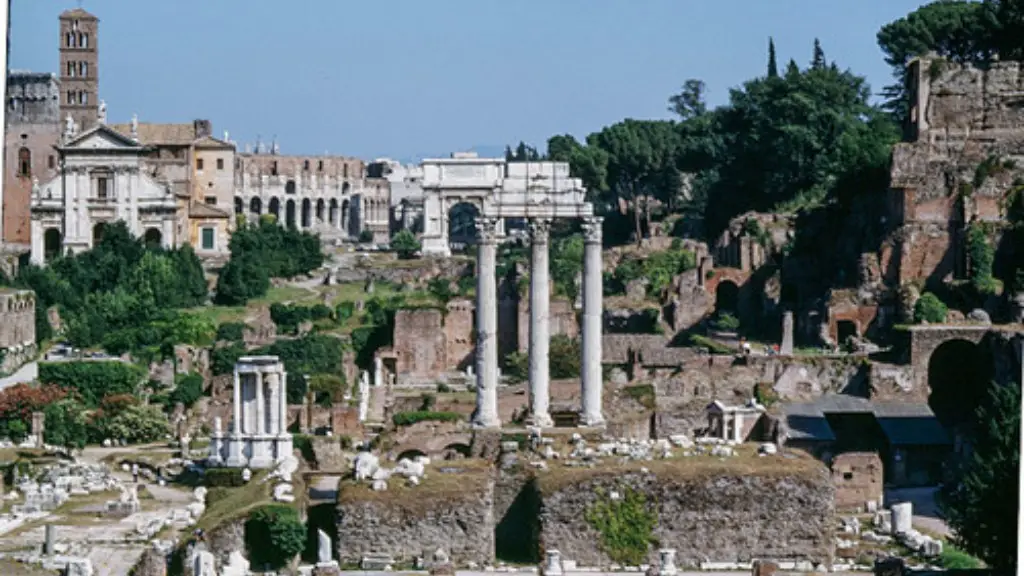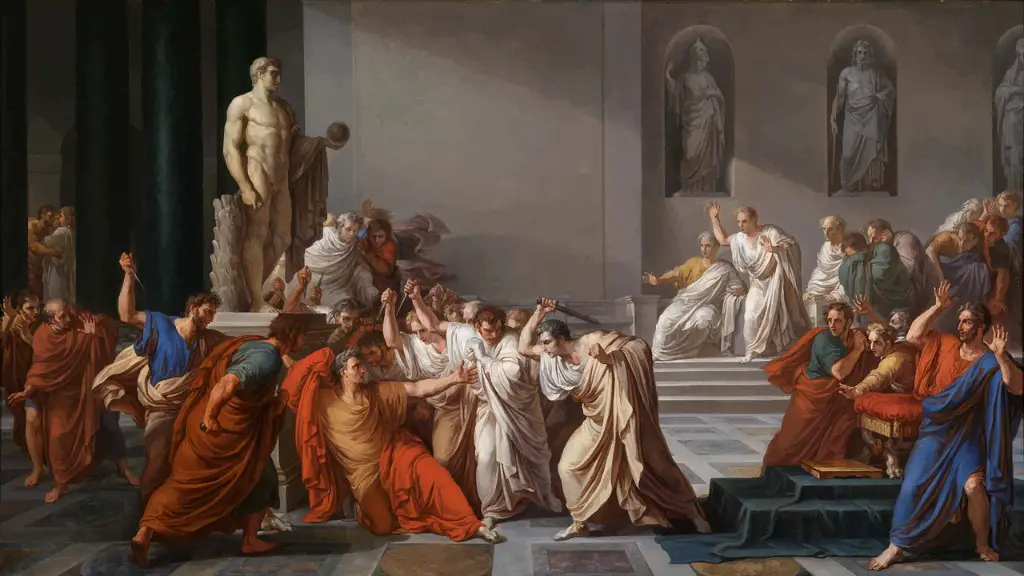The Ancient Romans were a civilization that flourished in the Mediterranean basin from approximately 600 BC to 500 AD. They were one of the most powerful and influential civilizations of antiquity and their legacy is still felt today. While their rise to power was rapid, the Ancient Romans were not without their flaws and were prone to periods of internal strife and conflict. In this article, we’ll take a look at the history and legacy of the Ancient Romans, and explore their impact on modern society.
The earliest known inhabitants of the area around Rome were the Latins and Etruscans, who were conquered by Rome in the 3rd century BC. This marked the beginning of the Roman Republic, which lasted until the implementation of the Roman Empire in the 1st century BC. At the height of their power, the Roman Empire extended from the Atlantic coast in the West to the Levant, North Africa and Central Greece in the East.
The Ancient Romans developed a sophisticated system of government, law, and military, which enabled them to expand their empire. They were also responsible for major advances in engineering and architecture, including the construction of a vast network of roads connecting the various provinces of the Empire. The Roman Colosseum is one of their most iconic constructions, showcasing their impressive architectural and engineering feats.
The Ancient Romans developed a profound set of philosophical and religious beliefs, which had a significant influence on the development of Western culture. Their system of government and legal system had a lasting impact on modern society, with many aspects of the United States constitution drawing heavily on Roman law. In addition, the language of the Ancient Romans, Latin, is still used by the Catholic Church in its liturgy, giving a sense of continuity to their legacy.
The contributions of the Ancient Romans to modern civilization go far beyond architecture and engineering. Their political and military expertise enabled them to construct a significant and influential empire, and their cultural, philosophical, and religious beliefs influence and shape our world to this day. Despite their flaws, the Ancient Romans have left a lasting mark on the world.
The Roman Military
The Roman military was one of the most advanced military forces of antiquity and served as a foundation for the development of modern warfare. The ancient Roman army was made up of legions of soldiers, divided into cohorts and centuries, and each soldier was assigned a specific role, such as infantry, cavalry or artillery. Their military tactics were highly effective and enabled them to achieve numerous victories against their enemies. The Roman army was also responsible for vast engineering projects, such as the construction of roads, bridges, and fortifications.
The Roman military was a highly disciplined and organized force that was able to mobilize swiftly and respond quickly to military threats. They utilized a variety of tactics and strategies depending on the situation, such as ambush, maneuver warfare, and siege tactics. The Roman military was also adept at naval warfare, and their navy was instrumental in achieving their conquests of Sicily, Illyria and other parts of the Mediterranean.
The Roman military was an effective fighting force, but it was also responsible for large-scale atrocities and repression of conquered peoples. The Roman Empire was established through a combination of military might and political savvy, and in the process, many people were enslaved or displaced. It is important to remember the cost of Rome’s conquests, even as we recognize their contributions to modern society.
The Roman Economy
The Roman economy was based on agriculture and increased trading and commerce. The Romans also developed new technologies, such as concrete, which enabled them to construct impressive architectural feats. The Roman currency was in the form of coins, which were used as a medium of exchange. They had a complex system of taxation, which provided the Roman state with revenue and enabled them to finance public works, such as aqueducts, temples and public baths.
Trade and commerce flourished during the Roman Empire and resulted in an increase in trade and commerce between Rome and other parts of the Mediterranean basin. The Roman Empire was also responsible for developing an extensive infrastructure, which enabled traders to move goods more quickly and easily throughout the Mediterranean world.
In addition to trade and commerce, the Roman economy was also supported by the production of military equipment, such as weapons and armor. They were also responsible for the development of new technologies, such as the water wheel, which enabled them to harvest crops more efficiently. The Roman economy was an important factor in the rise and fall of the Roman Empire, as it was both a reflection of the Empire’s strength and its downfall.
The Culture of the Ancient Romans
The Ancient Romans were a highly cultured people and their empire was characterized by an immense variety of art forms, literature, philosophy, and religion. They were well known for their sculpture, painting, and architecture, with the Colosseum being one of their greatest architectural accomplishments. They were also renowned for their literature, with the works of Virgil, Cicero, and Livy being some of their most famous works.
The religion of the Ancient Romans was polytheistic and focused primarily on the worship of their gods. They believed in a variety of gods and goddesses and their mythology was complex and varied. The Ancient Romans also developed a complex set of religious rituals and practices, which have been adopted by many modern religions.
The Ancient Romans developed a wide range of philosophical and political ideas, which had an impact on later philosophers and cultures. The idea of natural rights and democracy were developed by the Ancient Romans, and their legal system was a key factor in their success. Although they were not without their flaws, the Ancient Romans were a highly advanced civilization and their legacy and influence can still be felt today.
The Decline and Fall of the Roman Empire
The decline and fall of the Roman Empire began with a series of political, social, and military challenges faced by the Roman state. In the 3rd and 4th centuries, a series of civil wars, internal conflicts and outside invasions weakened the Roman state and made it vulnerable to attack. In 455 AD, the Roman Empire was sacked by the Vandals and subsequently fell into decline, eventually leading to its collapse in 476 AD.
The decline of the Roman Empire can be attributed to a variety of factors, such as over-expansion, economic decline and political incompetence. The Roman state was also weakened by the rise of Christianity, which led to internal strife and conflict. In addition, invasions by Germanic tribes, such as the Visigoths, Franks, and Vandals, put additional pressure on the Roman state. The fall of the Roman Empire was a slow and gradual process, but it marked the end of an era and ushered in a new period in European history.
Legacy of the Ancient Romans
The Ancient Romans have left a lasting legacy on the world. Their system of government and law, their language, their architecture, their art and literature all have had an immense impact on modern civilization. Their political and military strategies have been studied and adopted by many modern armies and their influence can still be felt today. The legacy of the Ancient Romans is an important part of our history, and it is worth examining and reflecting upon.
Conclusion
The Ancient Romans were one of the most influential civilizations of antiquity and their legacy is still felt today. They were a powerful and advanced civilization that was responsible for major advances in engineering and architecture, as well as law, language, and religion. They also developed sophisticated military strategies that enabled them to expand their empire. The Ancient Romans have left a lasting legacy on the world and their impact can still be felt today.
